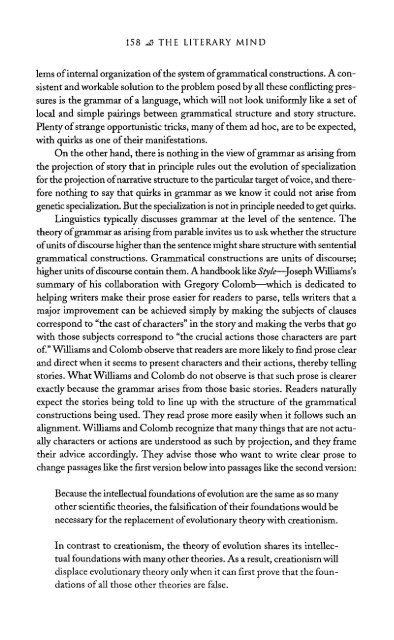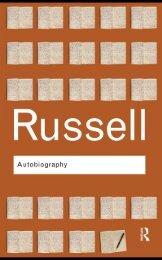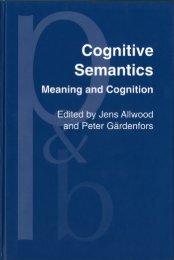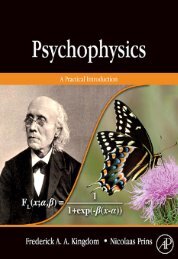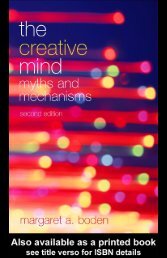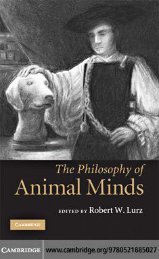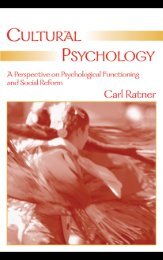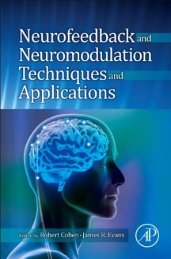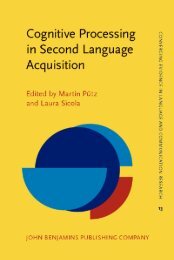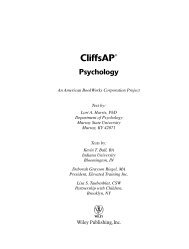The Literary Mind.pdf
The Literary Mind.pdf
The Literary Mind.pdf
You also want an ePaper? Increase the reach of your titles
YUMPU automatically turns print PDFs into web optimized ePapers that Google loves.
158 THE LITERARY MIND<br />
lems of internal organization of the system of grammatical constructions. A consistent<br />
and workable solution to the problem posed by all these conflicting pressures<br />
is the grammar of a language, which will not look uniformly like a set of<br />
local and simple pairings between grammatical structure and story structure.<br />
Plenty of strange opportunistic tricks, many of them ad hoc, are to be expected,<br />
with quirks as one of their manifestations.<br />
On the other hand, there is nothing in the view of grammar as arising from<br />
the projection of story that in principle rules out the evolution of specialization<br />
for the projection of narrative structure to the particular target of voice, and therefore<br />
nothing to say that quirks in grammar as we know it could not arise from<br />
genetic specialization. But the specialization is not in principle needed to get quirks.<br />
Linguistics typically discusses grammar at the level of the sentence. <strong>The</strong><br />
theory of grammar as arising from parable invites us to ask whether the structure<br />
of units of discourse higher than the sentence might share structure with sentential<br />
grammatical constructions. Grammatical constructions are units of discourse;<br />
higher units of discourse contain them. A handbook like Style—-Joseph Williams's<br />
summary of his collaboration with Gregory Colomb—which is dedicated to<br />
helping writers make their prose easier for readers to parse, tells writers that a<br />
major improvement can be achieved simply by making the subjects of clauses<br />
correspond to "the cast of characters" in the story and making the verbs that go<br />
with those subjects correspond to "the crucial actions those characters are part<br />
of." Williams and Colomb observe that readers are more likely to find prose clear<br />
and direct when it seems to present characters and their actions, thereby telling<br />
stories. What Williams and Colomb do not observe is that such prose is clearer<br />
exactly because the grammar arises from those basic stories. Readers naturally<br />
expect the stories being told to line up with the structure of the grammatical<br />
constructions being used. <strong>The</strong>y read prose more easily when it follows such an<br />
alignment. Williams and Colomb recognize that many things that are not actually<br />
characters or actions are understood as such by projection, and they frame<br />
their advice accordingly. <strong>The</strong>y advise those who want to write clear prose to<br />
change passages like the first version below into passages like the second version:<br />
Because the intellectual foundations of evolution are the same as so many<br />
other scientific theories, the falsification of their foundations would be<br />
necessary for the replacement of evolutionary theory with creationism.<br />
In contrast to creationism, the theory of evolution shares its intellectual<br />
foundations with many other theories. As a result, creationism will<br />
displace evolutionary theory only when it can first prove that the foundations<br />
of all those other theories are false.


